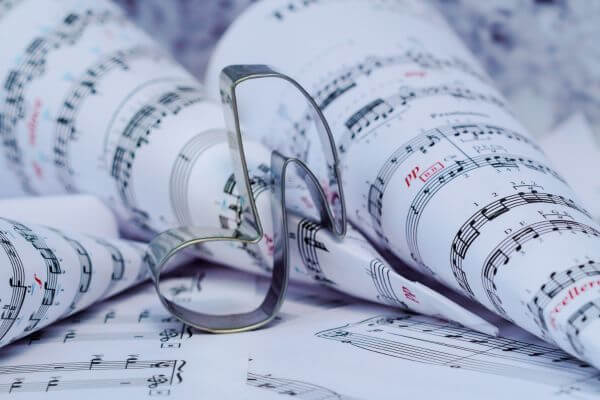Who Created Music?
Who created music? This question stands as one of the most intriguing mysteries in human history. From primitive beats on tree trunks to the complex symphonies of classical composers, music has accompanied humanity’s journey.
Moreover, music is not just a form of entertainment; it is a universal language that connects people, cultures, and eras.
In seeking to answer who created music, it is essential to understand that music was not invented by a single person or group. Instead, it evolved naturally over time, shaped by the social, religious, and emotional needs of diverse societies. This article explores the origins of music, its evolution, and its enduring impact.
The Early Origins of Music A Natural Phenomenon
Music Before Recorded History
Before history was documented, humans were already creating sounds that could be considered musical. For example, archaeologists have unearthed flutes made from bones that date back over 40,000 years. These primitive instruments indicate that organized sound was already a part of human life.
Additionally, the sounds of nature—birdsong, running water, and even the wind—inspired early humans to replicate and incorporate them into their own creations. Thus, music appears to have emerged as a way to mimic nature and express emotions.
Music as Communication
In the earliest human societies, music likely served as a communication tool. For instance, rhythmic drumming could send messages across long distances, while tribal chants reinforced social bonds. In this way, music became one of the first languages humans used to connect with one another.
Who Created Music? The Cultural Contexts
Ancient Civilizations and Music
Ancient civilizations like the Egyptians, Mesopotamians, and Chinese played critical roles in developing music. For instance, the Egyptians incorporated music into religious ceremonies, while the Chinese associated sound with spiritual and governmental harmony.
On the other hand, ancient Greek music introduced concepts like scales and harmony. Philosophers such as Pythagoras believed that music reflected cosmic order, linking mathematics, astronomy, and sound.
Music in Oral Traditions
In many cultures, music was passed down orally through generations. Moreover, songs and rhythms were used to preserve histories and teach communal values. Thus, the creation of music cannot be attributed to a single event or person but to a collective evolution over time.
The Evolution of Music Through the Ages
Music in the Middle Ages
During the Middle Ages, music became an integral part of churches and cathedrals. For example, Gregorian chant emerged as an early form of religious music in Europe, structured in scales that influenced Western music for centuries.
Additionally, music began to diversify, with troubadours and minstrels traveling to entertain both nobles and commoners. As a result, music evolved as both a symbol of power and a form of popular expression.
The Renaissance and Musical Innovation
The Renaissance period saw composers like Josquin des Prez and Palestrina experimenting with polyphony, creating more intricate and emotional compositions. Moreover, the invention of the printing press enabled the distribution of musical scores, facilitating learning and the spread of musical styles.
The Role of the Industrial Revolution in Music
The Industrial Revolution introduced new instruments and technologies that transformed music. For instance, the piano became a household staple, and orchestras expanded with new brass and string instruments.
Furthermore, music became more accessible to the public, with the rise of public concerts and opera performances. Thus, the creation of modern music was the result of collective cultural and technological advancements.
Who Created Modern Music?
Pioneers of Classical Music
Figures like Beethoven, Mozart, and Bach are often credited with shaping the foundations of modern music. Additionally, they introduced forms such as the symphony, sonata, and concerto, which remain influential to this day.Certainly! Here’s an additional three-line paragraph for the Who Created Modern Music? section:
Moreover, modern music is a blend of countless influences, from traditional folk melodies to revolutionary electronic sounds. Each genre, whether jazz, rock, or electronic, was shaped by cultural movements and technological advancements. Ultimately, modern music reflects a tapestry of human creativity, constantly evolving with societal shifts and global connections.
Popular Music and 20th-Century Innovators
The emergence of jazz, blues, and rock and roll marked another transformation in music. For example, artists like Louis Armstrong and Elvis Presley introduced rhythms and styles that reshaped global music. Therefore, the creators of modern popular music are the innovators who pushed boundaries and bridged cultures.
In addition, the 20th century saw the emergence of influential genres like rhythm and blues, country, and soul, each contributing unique styles and narratives to popular music. Artists like Aretha Franklin and Johnny Cash pushed boundaries, blending personal storytelling with innovative sounds. Consequently, these pioneers laid the foundation for the diverse and dynamic music landscape we enjoy today.
The Significance of Music Today
Music as Therapy
Today, music is widely used as a therapeutic tool. For instance, calming melodies help reduce anxiety, while upbeat rhythms aid in physical therapy and rehabilitation. Moreover, music connects emotions and fosters overall well-being.
Music and Technology
In the digital age, music has become more accessible than ever. For example, streaming platforms allow individuals to discover new music within seconds. Thus, modern music is created by both renowned artists and amateurs leveraging technology to express themselves.
Concluding about who created the music?
Who created music? The answer is as expansive as human history itself. From imitating the sounds of nature to composing intricate masterpieces, music is the result of a collective cultural and social evolution.
Moreover, music continues to evolve, shaping and reflecting the world around us. In summary, the creators of music are humanity as a whole, driven by the timeless pursuit of expression, connection, and beauty.

